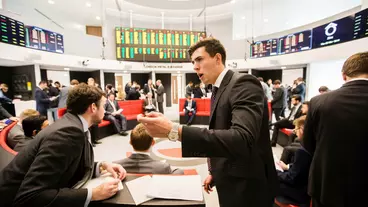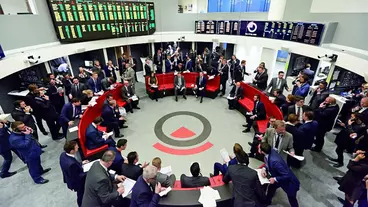New sanctions to reduce Russian revenue from metals
The UK and US Governments have announced new sanctions against Russian metal, restricting the acquisition of Russian metal produced on or after 13 April 2024.

A new action prohibits the import of Russian-origin aluminium, copper and nickel into the United States, and limits the use of Russian-origin aluminium, copper and nickel on global metal exchanges (LME in London and CME in Chicago) and in over-the-counter derivatives trading.
Ban on Russian metals to hit the Kremlin’s war machine
“Our new prohibitions on key metals, in coordination with our partners in the United Kingdom, will continue to target the revenue Russia can earn to continue its brutal war against Ukraine,” said Secretary of the Treasury, Janet L. Yellen. “By taking this action in a targeted and responsible manner, we will reduce Russia’s earnings while protecting our partners and allies from unwanted spillover effects.”
“Disabling Putin’s capacity to wage his illegal war in Ukraine is better achieved when we act alongside our allies,” said Jeremy Hunt, UK’s Chancellor of the Exchequer. “Our decisive action with the US to jointly ban Russian metals from the two largest exchanges will prevent the Kremlin funnelling more cash into its war machine.”
Trading on LME and CME prohibited
The London Metal Exchange (LME) and the Chicago Mercantile Exchange (CME) will no longer trade new aluminium, copper and nickel produced by Russia. UK legislation to directly ban imports of Russian metals, including aluminium, copper and nickel, was introduced in December 2023. Separately, the US put in place tariffs on various Russian metal imports.
Together, the UK and the US have now gone one step further and brought both metal exchanges into the scope of these measures – reinforcing a shared commitment to constrain Russia and support Ukraine. Metal exchanges provide a central role in facilitating the trading of industrial metals around the globe. The LME and CME both have warehouses all over the world. Together, they are the world’s two largest metal exchanges and set global benchmark prices for the trade of base metals. Both the UK and US measures will exempt the existing stock of Russian metal on these global exchanges so they can still be traded and withdrawn. This is to minimize the risk to market stability.
Russia’s export of metals decreasing
Metals are Russia’s largest export commodity after energy, though their value has been decreasing since Russia’s invasion of Ukraine. In 2022 they were USD25 billion, dropping to USD15 billion in 2023 due to the efforts of the G7 and allies to curtail the market. The new action will go further to constrain Russia’s ability to make money from its shrinking metals exports, dealing another blow to President Vladimir Putin’s funding for his illegal war in Ukraine.
Rusal statement
Rusal stresses in a press statement that “the above actions appear to be strictly around the exchange and derivatives. Rusal will remain capable of providing hedging services to our customers. Rusal also remains committed to the market-based pricing. The announced actions have also no impact on Rusal’s ability to supply since Rusal’s global logistic delivery solutions, access to banking system, overall production and quality systems are not affected.” Rusal also sees the great demand for the Russian metal from various end users from across the globe.
Aluminium price on the upswing
The aluminium price has been on the upswing since the beginning of March and has received a further boost from the trading ban on the LME and CME. Since the beginning of March, the aluminium price on the LME has risen by 21.2% to USD2,645/t (19 April). According to industry experts, the improved economic outlook in China and the USA as well as the threat of production cuts in the Chinese province of Yunnan due to drought have triggered this price increase. Since the trading ban on the two metal exchanges, the aluminium price has jumped by a further 5.3% to the aforementioned USD2,645/t. It remains to be seen whether this development is sustainable. China has purchased large quantities of Russian metal in recent months. And even though trading in Russian aluminium on the LME and CME is now sanctioned, Western buyers can order metal from Russia through direct supply contracts.

The European aluminium association European Aluminium (EA) welcomes the European Commission’s proposed 12th package of sanctions against Russia.

The London Metal Exchange (LME), the world’s largest metal exchange, does not get rid of its problems with Russian metals.

Constellium reported results for the first quarter of 2024. Despite the challenging market environment, A&T delivered record first quarter Segment Adjusted EBITDA.


